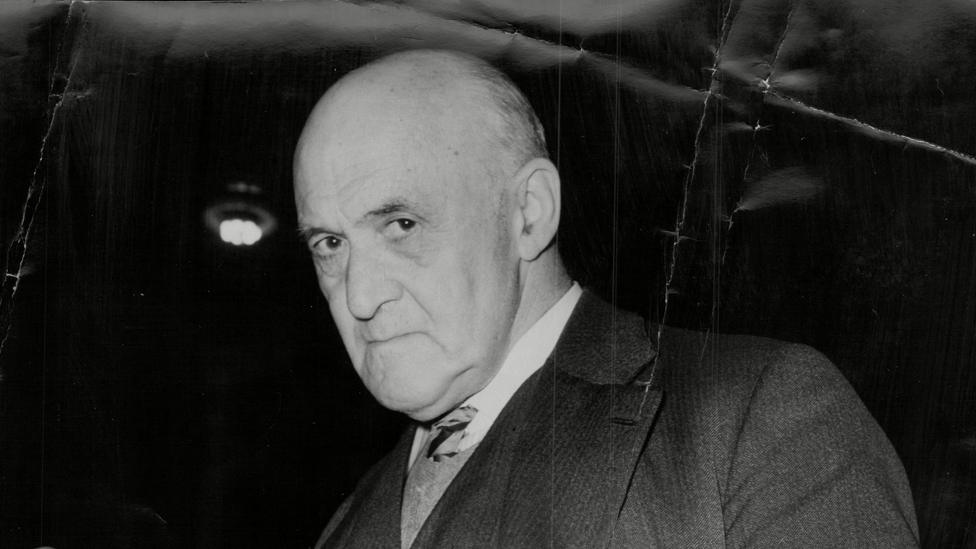How we endured the McCarthy purges in US
- Published
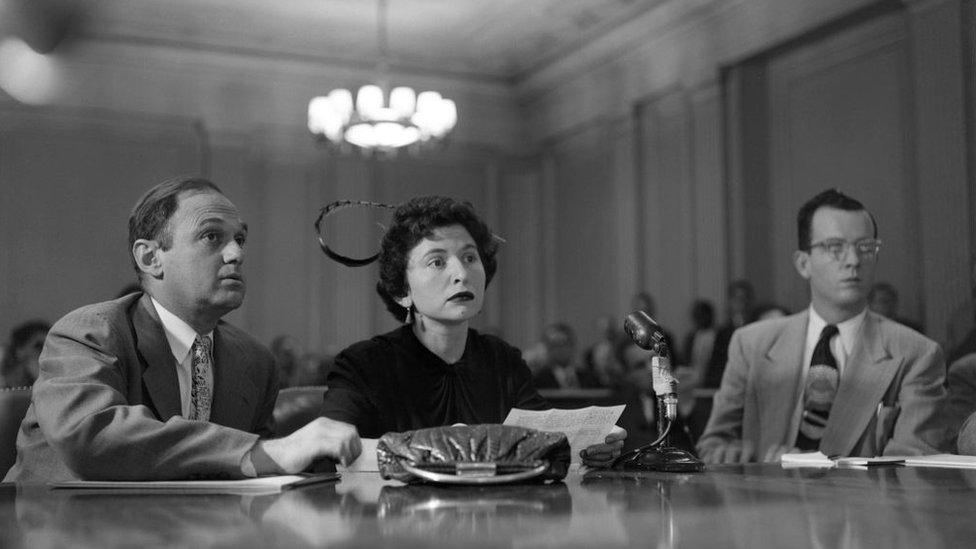
Thousands of Americans had their loyalties questioned by a US congressional committee in the 1950s
Nearly 70 years after the US government carried out its infamous purge of what it perceived as a Communist threat, some academics whose lives were turned upside down have been speaking out about lessons drawn from that era, writes Ehsan Masood.
"Are you, or have you ever been, a Communist?" It's been almost 70 years since America first awoke to that famous question.
It was February 1950 when Joseph McCarthy, the Republican Senator from Wisconsin, brandished a list of 205 suspected Communists he said were working for the US State Department.
McCarthy's speech kicked off perhaps the largest instance of mass-surveillance in 20th Century American history.
Thousands of Communists or suspected Communists were hauled before hearings where they were accused of trying to overthrow the government of the United States through "force or violence".
Seven decades later, many Americans may only be aware of the blacklisted Hollywood 10. But other survivors, such as university academics from the 1950s generation, also have stories to share of political intimidation.
And some of those victims are choosing to speak out for the first time.
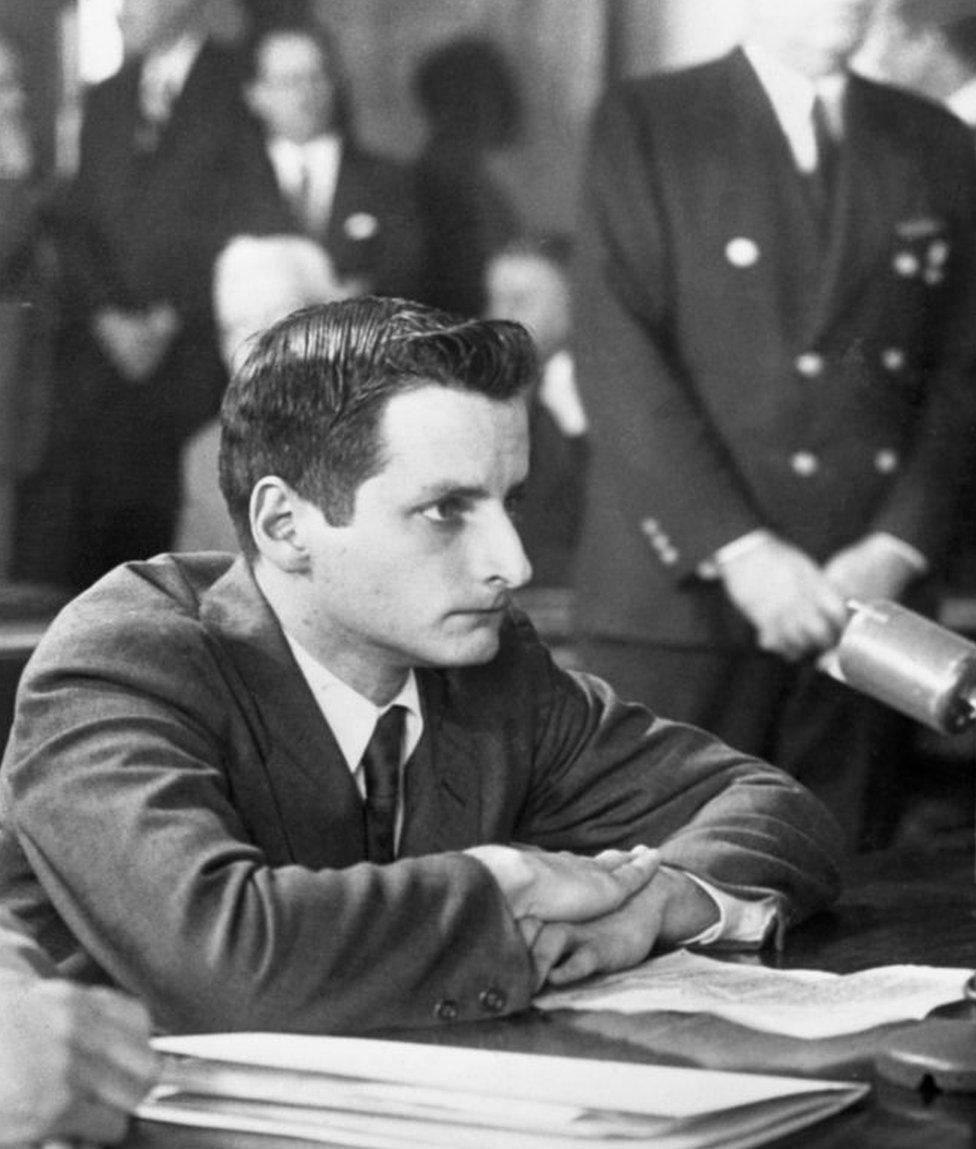
Leon Kamin testifies before McCarthy's committee in 1954

Among the survivors was psychologist Leon Kamin, a rabbi's son from Taunton, Massachusetts, who would go on to become a distinguished psychologist.
In 1953, Kamin received a summons to appear before one of the McCarthy hearings in the old courthouse at Boston, where he was pressed to reveal the names of other Boston Communists.
Kamin worked at Harvard University's underwater sound lab, a technology then used to detect submarines, says the veteran American science journalist Victor McElheny, who had been sent to cover the trial as a cub reporter for his university's student newspaper, The Harvard Crimson.
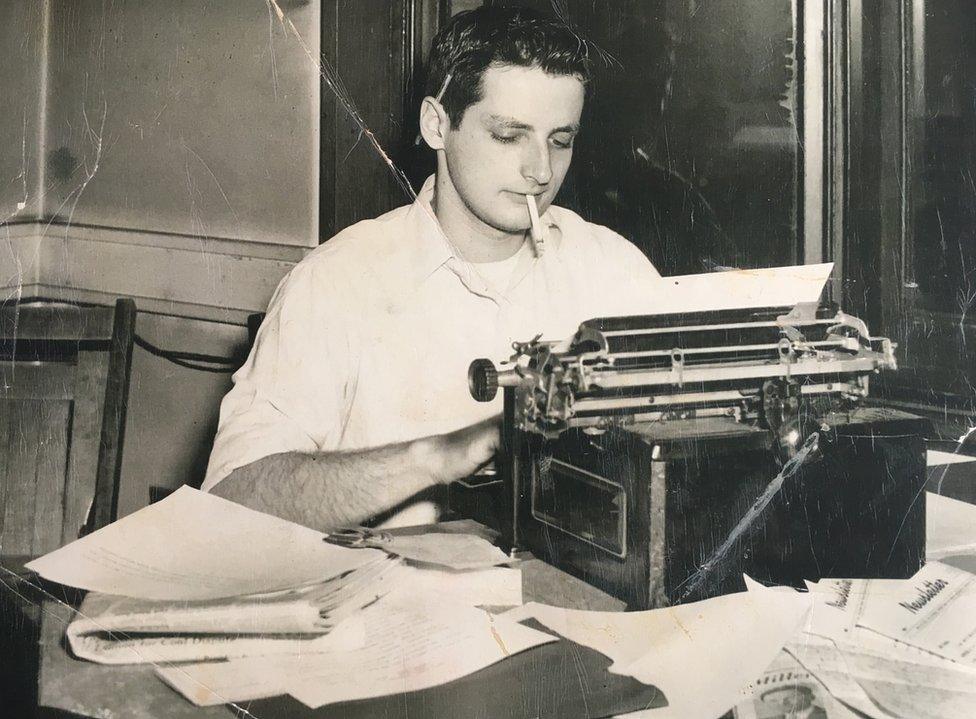
Leon Kamin during his time as a student at Harvard University
"This was a rather crucial piece of military related science. And so it sounded ominous that you had Communists in an important or sensitive defence laboratory," Mr McElheny says.
Speaking over six decades after his court appearance, Professor Kamin recalled the day as if it were only yesterday.
"As soon as the trial was about to begin McCarthy entered the courtroom and to the last man and woman, every member of the jury as well as everybody in the courtroom stood up and applauded."
Kamin's defence went for a mistrial because it was felt that the cheering in the court would affect the jury's attitude towards the case.
"That's what really got me off the hook," Kamin said with a chuckle. "Because my lawyer went to the judge and the judge agreed and dismissed the jury."
Leon Kamin, who passed away only days before his 90th birthday, never tried to hide his early Communist beliefs.
"I was proud of it," he said.
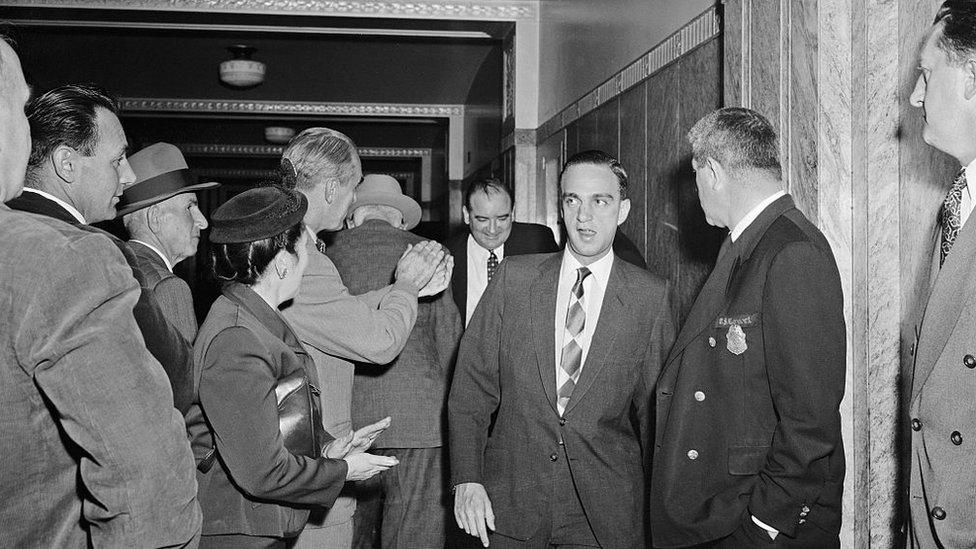
McCarthy and his lawyer Roy Cohn are applauded arriving at the Boston courthouse
But McCarthy's net caught anti-Communists too, such as development economist Gustav Papanek whose family, like Leon Kamin's, had fled the rise of fascism in eastern Europe at the start of the 20th Century.
Professor Papanek, who also trained at Harvard University, is now 92 and still advising the governments of countries such as Indonesia. But in the 1950s he was a PhD graduate at the start of his career and working for an agency of the State Department that provided technological assistance to poor countries.
"Senator McCarthy had said that the State Department was full of both Communists and incompetents and that they needed to be rooted out. This didn't worry us one bit because I, like 95% of the staff, had civil service protection and couldn't be fired."
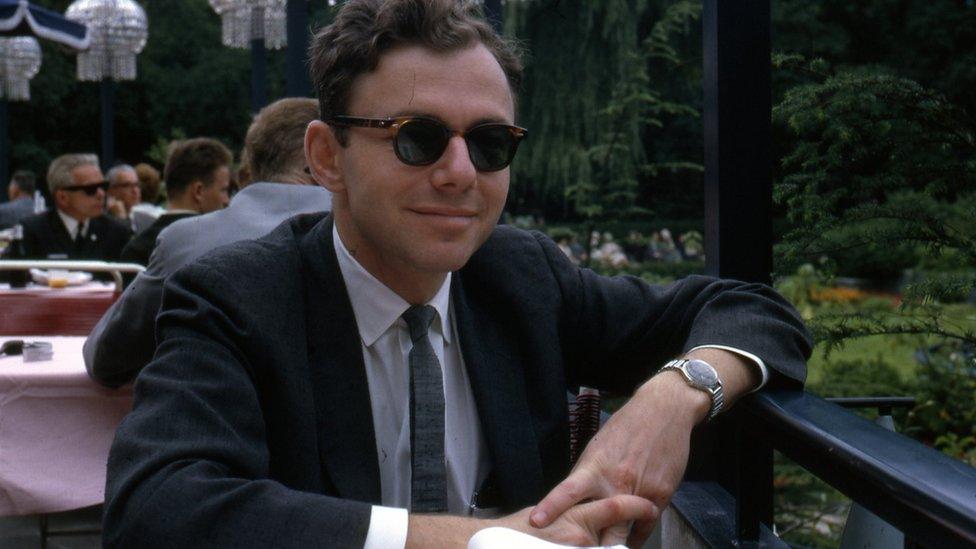
Gustav Papanek during a trip to Asia
Professor Papanek's employment could not be terminated because he'd fought in World War II and that gave him so-called Veterans Protection. It meant the only way that the government could get rid of him was to abolish the entire aid agency - which is exactly what happened.
"They established a new agency and hired 85% of the staff of the old agency back, but they didn't hire back those they considered incompetent, or Communists. So I was one of the people who received notification that my services were being terminated."
Unemployable in the US, Papanek took his family off to newly-independent Pakistan where he worked as an economic adviser until 1958 when McCarthyism was beginning its decline.
Professor Papanek was fortunate in one respect - he didn't have to contend with the might of the FBI.
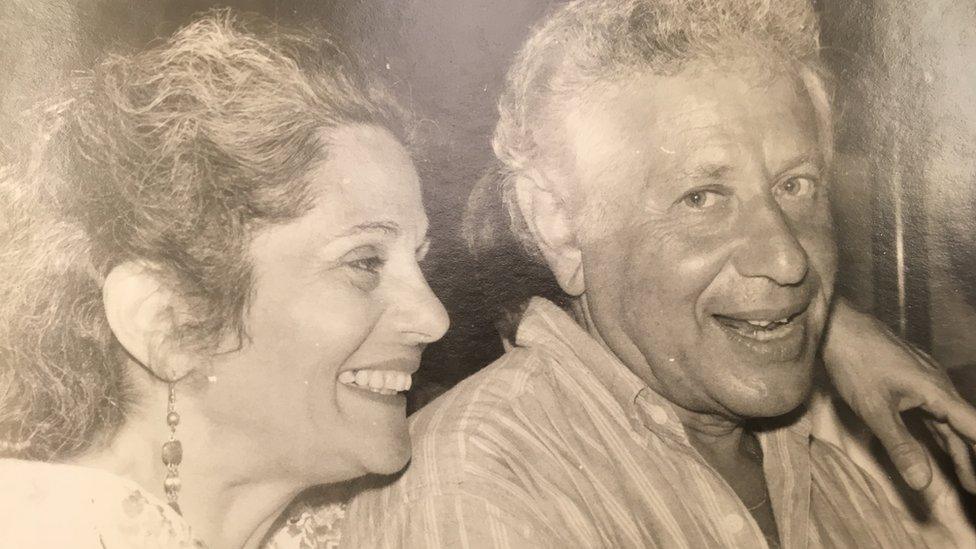
Mark Solomon says the FBI tried to sabotage his career
The FBI worked overtime to rid the country of what it regarded as the Red Menace, and it wasn't afraid of using dirty tricks, recalls the doyenne of McCarthy historians Ellen Schrecker from Yeshiva University in New York City.
"An FBI agent would come to the office of a governor or a state or college president and hand them a piece of paper that was always specified in the FBI records and watermarked 'untraceable blind memo'," Professor Schrecker recalls.
"It just listed somebody's name and all the incriminating associations that person had, with the expectation that person would not get tenure; would not have their appointment renewed; would be eased out quietly. There was no written record that the FBI had been there."
One of the FBI's such victims was Mark Solomon, a historian of African-Americans in Russia at Simmons College in Massachusetts, and another Harvard-trained PhD.
Years later when Professor Solomon asked to see his FBI file, he discovered that he had been targeted at the highest levels.
"When I get my FBI file, which is very incomplete, there were notations in there from the Boston district of the FBI to [FBI] Director [Edgar] Hoover asking if they should go ahead with some kind of campaign to discredit me and get me out of Harvard.
"And [Hoover's] response was, yes, go ahead and do it but be very careful about the sources that you use so as not to expose the FBI's role in this. Pretty much the exact words."
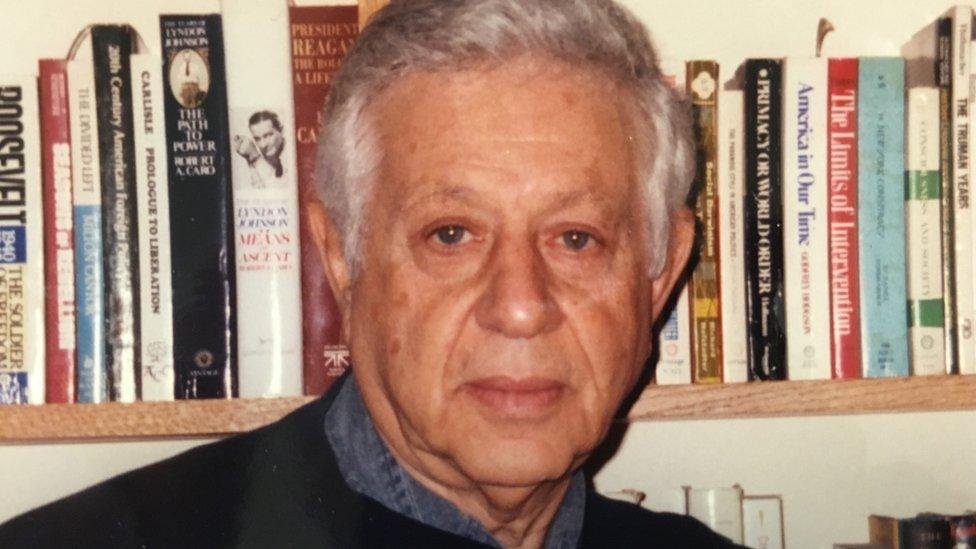
Mr Solomon says the FBI was careful to cover their tracks as they targeted him
As Europe and America bear witness to populist politics, Professor Papanek says he would not discount the possibility that a McCarthy could one day return.
He says should that happen, it would be very difficult to combat and would require resistance from Americans in all walks of life.
"It takes people with courage to stand up to people like McCarthy."
Ehsan Masood is a science and policy reporter who presented the BBC Radio 4 documentary Surviving McCarthy, produced by Peter Snowdon.

You may also like:
- Published1 May 2014
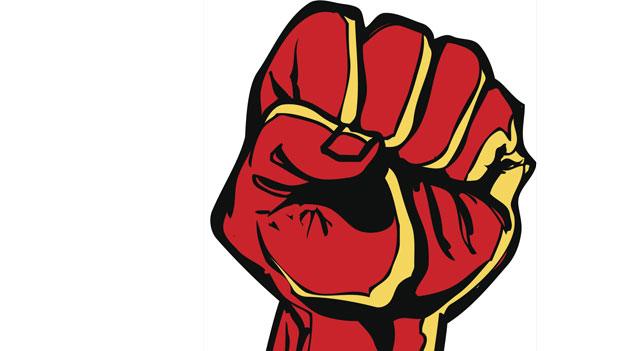
- Published26 January 2016
